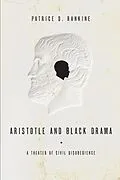Civil disobedience has a tattered history in the American story. Described by Martin Luther King Jr. as both moral reflection and political act, the performance of civil disobedience in the face of unjust laws is also, Patrice Rankine argues, a deeply artistic practice. Modern parallels to King's civil disobedience can be found in black theater, where the black body challenges the normative assumptions of classical texts and modes of creation. This is a theater of civil disobedience.
Utilizing Aristotle's Poetics, Rankine ably invokes the six aspects of Aristotelian drama--character, story, thought, spectacle, song, and diction. He demonstrates the re-appropriation and rejection of these themes by black playwrights August Wilson, Adrienne Kennedy, and Eugene O'Neill. Aristotle and Black Drama frames the theater of civil disobedience to challenge the hostility that still exists between theater and black identity.
Autorentext
Patrice D. Rankine
Inhalt
List of Illustrations
Prologue
1 Introduction, Civil Disobedience as Resistance to Tradition and Performance
2 Classical Origins of Character and Adrienne Kennedy's Funnyhouse of a Negro, Electra, and Orestes
3 The Oedipus Story and the Perfect Play, or the Gospel According to Rita Dove
The Darker Face of the Earth and Sonata Mulattica: A Life in Five Movements and a Short Play
4 Racial Intent and Dramatic Form
Eugene O'Neill's All God's Chillun Got Wings and The Emperor Jones
5 Aristotle's "Spectacle" and August Wilson's "Spectacle Character"
Joe Turner's Come and Gone
6 Freedom Songs and Metaphors of Healing
Eugene O'Neill's Mourning Becomes Electra, Lorraine Hansberry's A Raisin in the Sun, and Suzan-Lori Parks' Venus and Topdog/Underdog
7 Civil Disobedience, Truth and Reconciliation, and the Cosmopolitan Citizen
Charles Smith's The Gospel According to James, Thomas Bradshaw's Mary, David Mamet's Race, and Bruce Norris' Clybourne Park
Epilogue
References
Index
